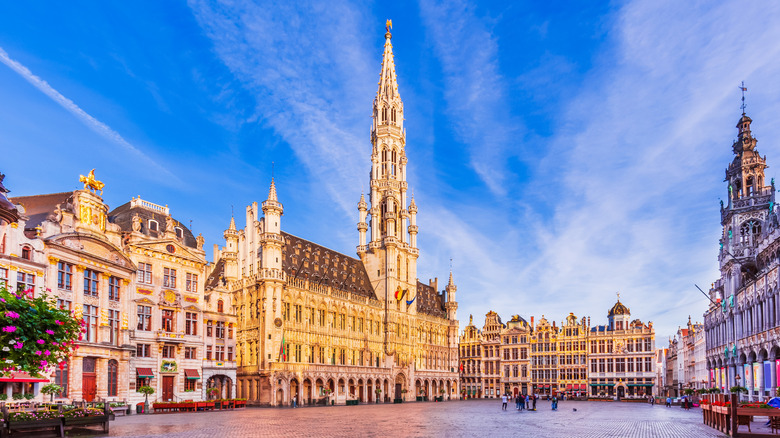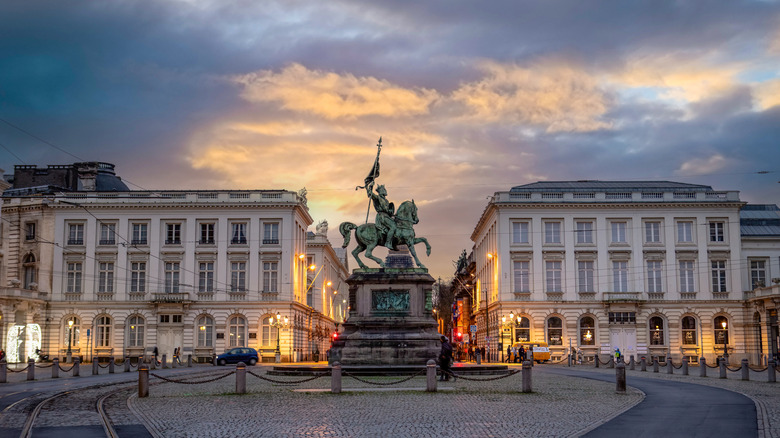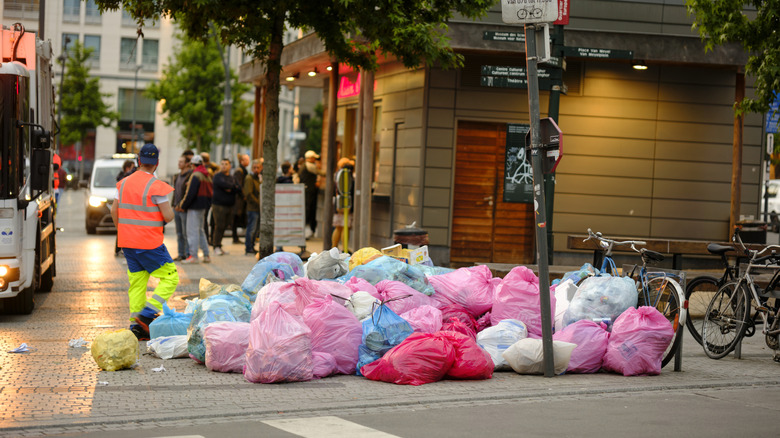One Of Europe's Least-Friendly Tourist Destinations Will Make You Rethink Your Trip (And It's Not Paris)
Europe's top tourist destinations are, by and large, fantastic places to visit. Filled with stunning architecture, old-world charm, and enough gourmet cooking to have you salivating from morning to night, exploring the biggest and most popular cities in Europe is a must for any traveler. However, some of Europe's biggest cities often also suffer from a reputation for being unwelcoming and unfriendly.
Complex and difficult relations between tourists and locals aren't a new phenomenon, and it is hardly unique to European destinations. Tourist spots around the world struggle to find a balance between the benefits and downsides of tourism. But there is a particular aloofness and coldness that can exist in European cities that is sometimes just a part of the culture. And while Paris and London are often described as the hardest places to break the ice with locals, when it comes to unfriendliness, Brussels, Belgium is almost impossible to beat.
Belgium is the best-kept secret in Europe, according to travel expert Rick Steves, and Brussels certainly has its charms. It is the gateway to both Belgium and the Netherlands, the busiest railway station in the country, acting as a hub for new European sleeper routes as well as trains from the UK, Germany, and France. It is filled with gorgeous architecture, from the Baroque grandeur of the Grand Place to the Art Nouveau beauty of Victor Horta's masterpieces. It boasts some of the best art galleries and museums in Europe, and Belgian beer is famous the world over. And yet, the chilly welcome that many receive makes plenty of tourists rethink their trip, and loads of travelers use Brussels as nothing more than somewhere to change planes or trains.
Unfriendly locals and serious safety concerns
The most common complaint about Brussels is that local residents are unwelcoming, unfriendly, and cold. Travel YouTuber Mark Wolters of Wolters' World says that "Overall, the Belgians themselves are not always the most friendly people," and he mentions Brussels in particular as somewhere where the locals are rude. Of course, big cities all over the world tend to feel more isolating and impersonal than smaller destinations. When millions of people are crammed together, it is far harder to get that warm, small–town feel, and it is understandable that tourists will be treated just like any other person, just another face in the crowd. But the distant, bureaucratic atmosphere in Brussels is described as significantly more pronounced than in other similar cities, and there is a distinct distaste among locals for tourists and sightseers.
There is also a second, darker side to Brussels' poor reputation among travelers. Wolters describes how Belgium is "The only country I've gone to in Europe with my students where we had racist attacks on my students," and recent studies have shown that Brussels and Belgium more widely have a serious problem with racial harassment.
Perhaps even more concerning is the increasing gang violence and gun crime that mark daily life in Brussels, making it not just an unwelcoming place to visit, but an unsafe one too. The last few decades have seen a significant increase in weapons and drug-related crimes, which have often spilled over from the gangs themselves to impact locals and tourists.
A city marred by garbage
As if a reputation for unfriendliness wasn't enough, Brussels also often struggles with the perception that it is an especially dirty city. Despite being a modern, dynamic city and the center of the European Parliament, Brussels struggles with an ineffective waste management system that leaves bags of garbage piling up on the pavements for days, even weeks at a time. This has led to complaints from locals and tourists that the city is smelly, filthy, and unpleasant to live in or visit.
Brussels is also often described as an expensive place to visit, although this criticism doesn't stand up to scrutiny. Sure, it is a pricier option than some other major European capitals, particularly in southern European countries like Spain and Italy, but it is significantly more affordable than comparable cities in northern Europe, such as Amsterdam and Paris.
There are plenty of reasons to plan a trip to Brussels. As a railway hub, it is a natural stopping-off point on a train adventure around Europe, and it boasts an array of interesting things to see and do, from the charming and unusual Mannequin Pis to the Musées Royaux des Beaux-Arts and the Église Notre-Dame du Sablon. But it is worth being prepared for a less-than-cordial welcome and to pay attention to personal security while there, so you are not shocked by what awaits you in Belgium's complicated capital city. You can always decide to visit one of Rick Steves' hidden-gem destinations in Europe instead!


